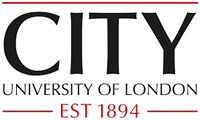Prof K Hilari, Prof Alan Simpson, Dr N Behn
No more applications being accepted
Funded PhD Project (European/UK Students Only)
About the Project
Cognitive-communication disorders (CCDs) are common in over 75% of people who sustain a brain injury. These disorders can have a significant effect on a person’s return to work, school, family, community and social participation. A potentially useful intervention which may help to address some of the issues that arise from cognitive-communication disorders is peer befriending. Peer befriending is social and emotional support provided by people with experience of a condition to others sharing a similar condition. A recent systematic review found that there is limited high-quality evidence for the effectiveness of peer befriending. Setting individualised communication goals has often been recommended for the remediation of CCDs following brain injury. Setting such goals within the context of a peer befriending intervention may prove promising.
The proposed PhD: This study will involve a feasibility trial of peer befriending with individualised communication goal setting for people with brain injury. This study will build on a peer befriending trial already underway at City for people with aphasia post stroke. Phase 1 of the study will involve a systematic review of peer support interventions in brain injury, adapting an intervention manual for people with brain injury, and developing processes for setting goals, in collaboration with expert clinicians. Phase 2 will run a feasibility randomised controlled trial (N~30), comparing a peer befriending intervention with a control group. For ethical reasons, at the end of the project, those in the control group will be offered the intervention. Feasibility outcomes will explore recruitment, willingness to be randomised, compliance with and acceptability of the treatment and of the outcome measures. This study would aim to improve social participation and wellbeing outcomes, and goal attainment of individualised communication goals. It will lay the foundation for applying for funding for a larger trial at the NIHR.
Supervisory Team: The named team represents expertise in feasibility RCTs, peer befriending, and cognitive-communication disorders after brain injury. The candidate will be able to draw on the wider LCS team involved in the peer befriending trial for people with aphasia post-stroke. Professor Togher (Honorary Professor at City) will also be consulted. No Speech and Language Therapy Department within a UK university has a strong research profile for CCDs so this application aims to establish this profile at City over a few years.
Potential for a field of strong candidates: LCS has a strong track record of recruiting excellent PhD candidates, including PhD students who have undertaken work in the area of CCDs (Behn). This proposal may be of interest to SLT clinicians in the field considering a PhD, recent SLT graduates or students completing related MScs.
If you would like to have an informal discussion please contact [Email Address Removed]
School of Health Sciences
The School of Health Sciences is offering up to five full/part-time Doctoral Studentships to outstanding candidates. We are a leading provider of applied healthcare research and we offer PhD candidates an outstanding research environment: in REF 2014, 100% of our research environment was judged as world leading or internationally excellent and 100% of research impact was judged as world leading or internationally excellent. In the recent Postgraduate Research Experience Survey, 96% of PhD students responding rated the expertise and responsiveness of their supervisors as excellent. Successful applicants would join around 70 current PhD students in the School, providing a supportive environment of peers.
Eligibility
The studentships will be awarded on the basis of outstanding academic achievement and the potential to produce cutting edge-research.
• Applicants must hold at least a 2.1 honours degree or merit level Masters degree in a relevant subject (or international equivalent)
• Applicants whose first language is not English must have achieved at least 7.0 in IELTS or a recognised equivalent
• Applicants must not be currently registered as a doctoral student at City, University of London or any other academic institution
How to Apply
To apply for studentship funding:
• Complete an application form for a place on the PhD programme by clicking here where you will be asked to register before you can complete your application
• Upload your research proposal (four sides of A4 maximum including references) on one of the specific projects listed by supervisors or in any of the areas covered by the research centres following discussion and agreement with a potential supervisor.
Research centres: https://www.city.ac.uk/health/research
• Suggested structure of proposal:
1. Project description; Topic, motivation from the literature, Methods and potential impact
2. How does this fit with the work carried out in the School of Health Sciences?
3. Potential for this research lead to an important question or methodological innovation that might lead to 4* output
• Upload a short cover letter with your application requesting that your application be considered for studentship funding
• Submit your online application form and supporting documents by 30 November 2018. If you have any queries, please the doctoral degrees support officer, Tracy Rowson ([Email Address Removed]).
Funding Notes
• An annual bursary (£16,000 in 2018/19)
• All fees for PhD student registration paid for UK and EU students. Applications are welcome from overseas applicants but the applicant must make appropriate arrangements to cover the difference between the overseas and UK tuition fee
• Research costs up to £1000 over the three years

 Continue with Facebook
Continue with Facebook

